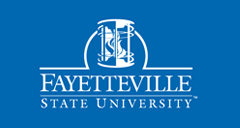Abstract
The growing presence of online education can become a challenge for academic leaders and institutions to lead, manage, and explore in higher education. Online education can be complex when considering the social presence (Keast, 2022; Quayson, 2022), course development (Martin et al., 2019; Orlando, 2019), and economic outcomes (Burnett & Conley, 2013; Rubin, 2013; Seaman et al., 2019). However, unraveling the fundamentals of practical leadership can help educational leaders to facilitate, maintain, and implement online education programs. The study found published research studies that helped us to extricate the fundamentals of practical leadership in implementing online education programs in the following ways: the process of implementing online education programs, facilitation of the use of the Internet as the delivery method, and curriculum and instructional design. The study findings indicate that educational leaders should invest in high-speed Internet service and learning technologies, provide professional development trainings for students and faculty members, supply faculty members with certificate of completion after training, focus on technology challenges, and ensure that faculty members are recognized as course content curators.
Recommended Citation
Quayson, Felix O. and Zirkle, Christopher
(2022)
"Practical Leadership In Implementing Online Education Programs,"
Journal of Research Initiatives: Vol. 6:
Iss.
3, Article 7.
Available at:
https://digitalcommons.uncfsu.edu/jri/vol6/iss3/7
Included in
Adult and Continuing Education Administration Commons, Curriculum and Instruction Commons, Educational Assessment, Evaluation, and Research Commons, Educational Leadership Commons, Educational Methods Commons, Higher Education Commons, Higher Education Administration Commons, Higher Education and Teaching Commons, Online and Distance Education Commons
